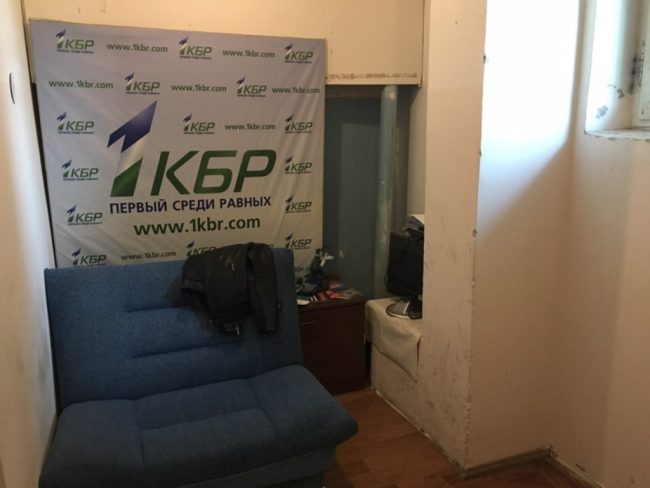
Employees from the state media holding of the Russian republic Kabardino-Balkaria have appealed to the authorities over violations of their labour rights. Camera operators from KBR-Media complained of unfair working conditions, including being forced to work weekends for little remuneration.
Kabardino-Balkaria’s only independent periodical, Gazeta Yuga (The Newspaper of the South), first reported on the companits of staff at TV channel 1 KBR on 11 October.
KBR-Media’s chief camera operator, Magomed Teppeyev, told OC Media that due to the nature of their profession, in addition to five working days, he and his subordinates were forced to work weekends and public holidays for a bonus of just ₽470 ($7) per month.
According to him, employees are legally entitled to double pay for work on weekends, which would be around ₽800 ($12) for every extra day.
In addition, he said that working hours on weekends and holidays ‘often exceeds the 8 hours stipulated by law, and these extra hours are not paid for even symbolically’.
‘This has lasted for years. We are tired of working for free’, Teppeyev said.
According to him, in KBR-Media works 13 camera operators, and in weekends in average 8 of them comes to job. Together with video and text editors, directors and drivers, according to him, in weekends work 39 persons.
One operator at KBR-Media, Sufyan (not his real name), told OC Media he had worked at the station for four years, over which overtime pay had been raised repeatedly.
‘In response, the bosses would say that since we signed the labour contract in which the bonus of ₽470 is stipulated, this is how much we will get’.
Sufyan said this contract is illegal and must be revised.
‘On top of that, as far as I know, the labour contract signed between the administration and employees expired long ago, and we did not sign a new one’, he says.
Several employees of KBR-Media who spoke to OC Media also complained that late payment of salaries at Channel 1 KBR had become ‘a common occurrence’.
‘I don’t remember when I was paid vacation pay in time’, Teppeyev remarked, adding that according to Russia’s Labour Code, holiday pay must be paid no later than three days before it starts.
‘Damp even in summer’
Teppeyev told OC Media that the camera operators were forced to work in cramped conditions, with 13 people working in a space of just 18.5 square meters, 1.4 square metres per person. According to him, this was a violation of sanitary standards.
‘In these basement rooms, it’s damp even in summer. Sooner or later, work in such premises can lead to chronic diseases’, Alber Mamiyev, one camera operator, said.
Teppeyev said that less than a month ago, almost all employees of the information service of Channel 1 KBR moved to a renovated building in another district of Nalchik, but there was no room for the camera operators.
According to Teppeyev, all the camera equipment is stored in the new building.
‘Now we, operators, are located several kilometers away from our equipment, and before shooting we have to go to the new building for cameras and tripods first.’ Teppeyev added that camera operators must go to get the equipment with their own means of transportation.
‘Retaliation’
According to Teppeyev, before Gazeta Yuga reported on the issue, camera operators addressed the chairman of the television workers' union, Murat Bottayev, who supported their demands.
‘In retaliation for this support, the leadership of KBR-Media staged the collection of employee signatures to replace Bottayev with a new labour-union leader who is more loyal to the administration. This prompted us to write an appeal to the leadership of the republic, the prosecutor’s office, and other institutions’, Teppeyev said.
According to Gazeta Yuga, the refusal of camera operators to work weekends led to the disruption in translations of television programmes into national languages on 22–23 September.
‘This was a so-called “Italian strike”, meaning employees were not going to work for legitimate reasons — illness, family circumstances, late notification, leaving work after the official working day is over, and others reasons’, Teppeyev told OC Media.




 22 October 2018
22 October 2018


